
In their own words: Why we have to #WriteTheWrong on global education
Children in conflicts, Early childhood development, Education funding, Education in emergencies, Girls' education, Global Youth Ambassadors, International Finance Facility for Education, Safe schools, Sustainable Development Goals
A look at Theirworld's efforts to give every child a quality education and youth skills through the eyes of children, teachers and young activists.
Sustainable Development Goal 4 aims to “ensure inclusive and equitable quality education and promote lifelong learning opportunities for all”.
Theirworld is devoted to achieving that goal and believes it is within our capabilities to #WriteTheWrong and end a global education crisis that sees 260 million children out of school and millions more in classrooms but not learning the basics they need for future work.
Our #WriteTheWrong campaign aims to build understanding of the situation and calls on world leaders to pledge major funding to provide education for all.
Here we look at some of Theirworld’s projects, causes, research and campaign work through the voices and experiences of those most affected – children, families, teachers and local organisations running programmes.
Code Clubs
“Technology is very simple. You can use technology to do many things,” said 11-year-old Ivynyce Njeri.
Technology is changing rapidly and children who leave school without the basic skills to face that challenge are in danger of being left behind.
Theirworld’s Code Clubs have supported over 1,300 marginalised and disadvantaged girls through projects in Zimbabwe, Kenya, Uganda, Nigeria, Tanzania and Lebanon. Now our Skills for Their Future programme will help older girls to be ready for work.
Ivynyce attends a Theirworld Code Club run by Youth for Technology at Huruma Girls’ School in Nairobi, Kenya. She said: “I’ve learned a lot through coding. You can code using a laptop computer or a mobile phone. You can do anything through coding – anything is possible in Code Club.”
Trauma training for teachers
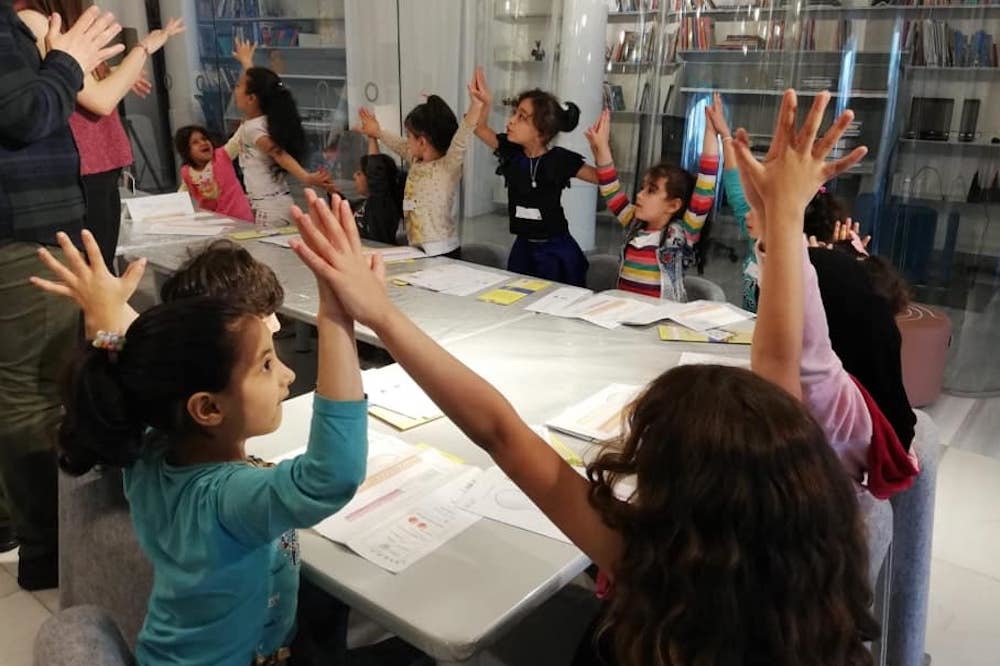
“I thought their capacities were very low – I was thinking that they had problems with intelligence. After the training, I realised that all of these children were traumatised.”
This is the admission of a teacher in Turkey who had Syrian refugee children in her class. Like many others, she didn’t really understand the trauma suffered by her students who had lived through conflict and been uprooted from their homes.
But she has been helped by a project called Trauma Informed Schools – supported by Theirworld – that has trained over 1,000 teachers and touched the lives of 5,000 students.
Another teacher who went through the training said: “I’ve learned how to observe and detect the signs of traumatised children in the classroom. I have a better insight now.”
Turkey is home to 3.6 million registered Syrian refugees and 44% of them are 17 or under. That means hundreds of thousands of Syrian children are in Turkey’s public schools as part of a three-year plan to transition every refugee into education.
A report by the Istanbul-based Maya Vakfı has recommended that the Turkish government, along with NGOs and agencies dealing with traumatised students in Turkey and in other countries, could adopt the Trauma Informed Schools model.
Refugee education in Greece
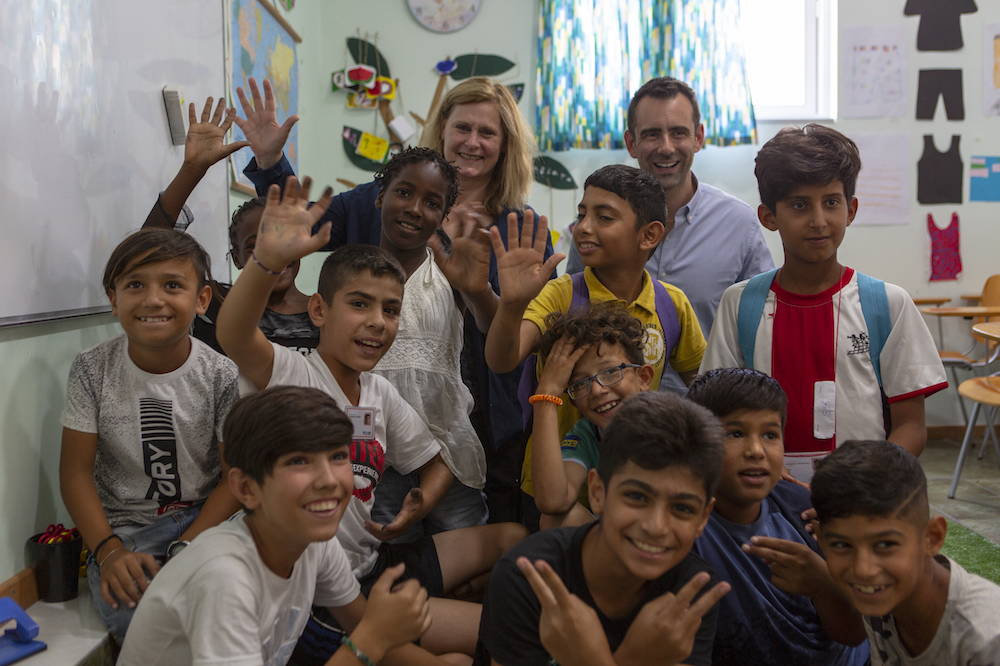
Fahimeh Nourmohammadi fled with her husband and family from Iran to escape religious radicals. Now a refugee in the Moria camp on the Greek island of Lesvos, she fears for her children, aged 12 and 16.
“At Moria, my children don’t go to school, they are bored and at night they are scared,” she said. “We came all this way so they could have a future, so they could live in a democracy, and not for them to be in an unsanitary camp.”
Conditions for children in the reception centres on the islands of Lesvos and Kos are appalling. But about 5,500 of the refugee children there will soon be getting an education thanks to a Theirworld project.
The programme is being funded through Education Cannot Wait thanks to the generosity of players of the Dutch Postcode Lottery, which provided $2.8 million. It will be co-ordinated with UN agencies and implemented by local partners.
Safe schools
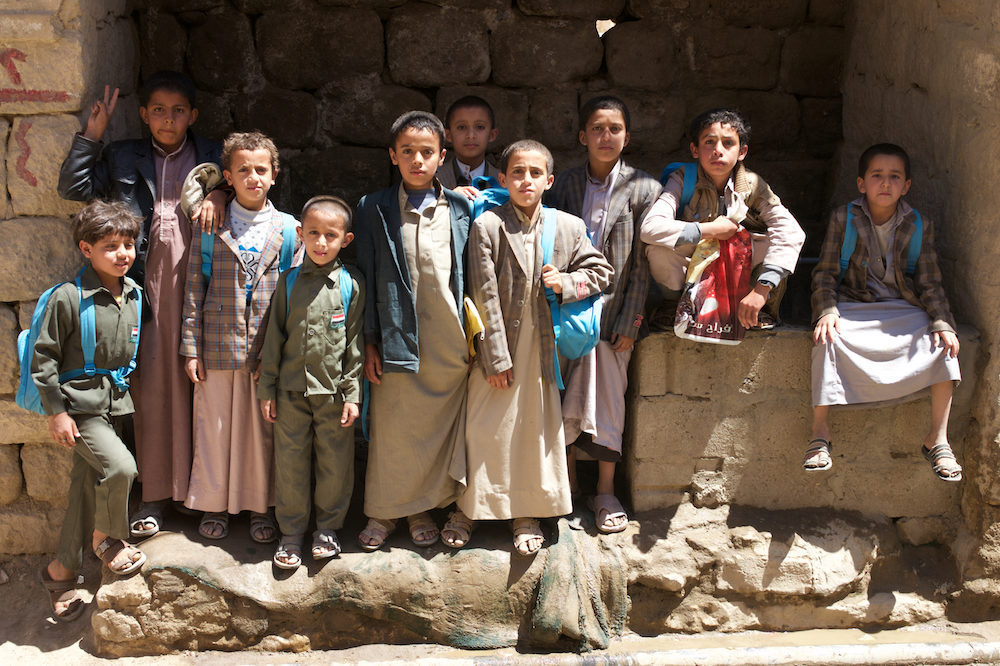
“We are always afraid a bomb might go off. Everyone is scared and no one can study,” said Amir Gul. The 15-year-old student spoke after Papen High School was reduced to rubble during fighting in Afghanistan in August.
Many of the children in Nangarhar province have witnessed terrible crimes carried out by Islamic State. School director Muhamad Wali said: “When the students go to sleep at night, they dream about Daesh and they are haunted by these atrocities. They scream in their sleep and when they come here they are so stressed out.”
Nearly 40 million children a year have their education interrupted or ended by wars in which schools are destroyed or occupied. 75 million in total have their education disrupted by the effects of conflict. Safe schools are needed for children to learn, free from danger.
But Theirworld’s report Safe Schools: The Hidden Crisis projected that 620 million girls and boys – nearly 40% of all school-age children worldwide – will live in countries where their education is at risk from war, violence or environmental threats by 2030.
Girls' education
“Lack of education is the fundamental issue that is holding back girls all around the world from realising their true potential,” said Palak Sharma, one of Theirworld’s network of 1,000 Global Youth Ambassadors in 90 countries.
She made a special video to mark this year’s International Day of the Girl. One of the biggest barriers facing girls is lack of access to education – and it’s one the #WriteTheWrong campaign is working to overcome.
Theirworld aims to bring about increased commitment and funding to end the global education crisis.
Girls are still more likely to be permanently excluded from education than boys. According to the latest data from the UNESCO Institute for Statistics, nine million girls of primary school age will never spend a day in school, compared to three million boys.
Aid for education in emergencies
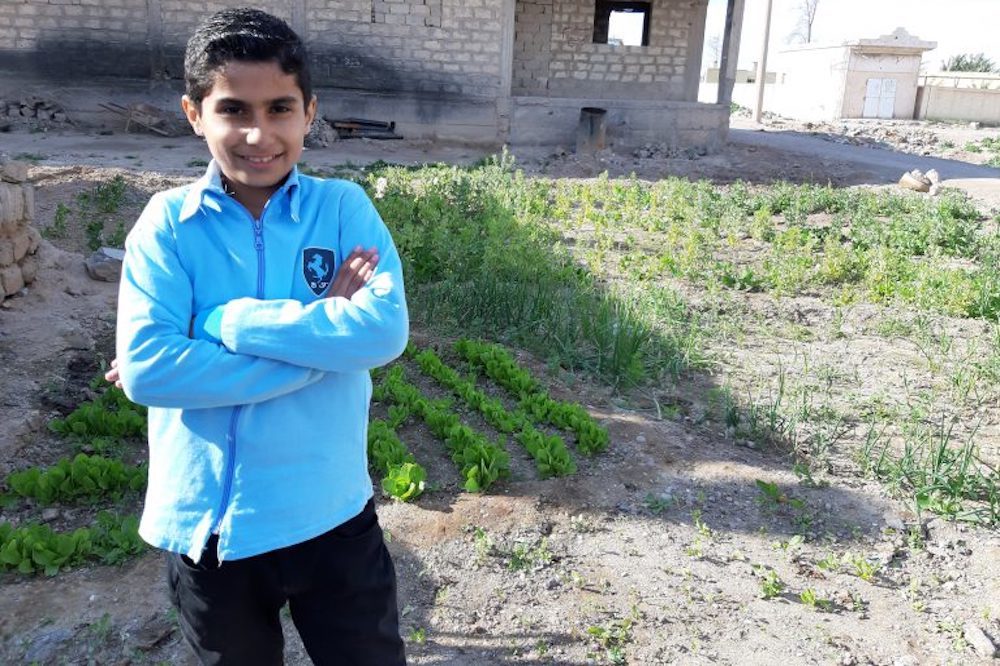
When fighting destroyed the only school in his Syrian town, Zakaria had to walk an hour to a nearby town – and his congenital heart disease meant the journey was a struggle. But now his life has changed for the better.
“I’m so happy to be back in my original school,” said the 12-year-old after funding from Education Cannot Wait provided new classrooms nearer home. “I don’t want any child anywhere in the world to lose their right to learn.”
Conflict and disasters put 75 million children out of school. But only 2% of all humanitarian aid was being spent on education when Theirworld began campaigning in 2015 for the international community to step up their efforts.
Education Cannot Wait – the fund for education in emergencies – was established in 2016 after being championed by Theirworld. So far it has supported 1.4 million children and youth in 32 countries.
Another innovation helping children in crises is REACT (Rapid Education Action). It is based on a simple idea – that businesses can supply tools, resources and knowledge that will help vulnerable children access education. The brainchild of the Global Business Coalition for Education (GBC-Education), the REACT website has been revamped to make it even better and more efficient.
Youth skills
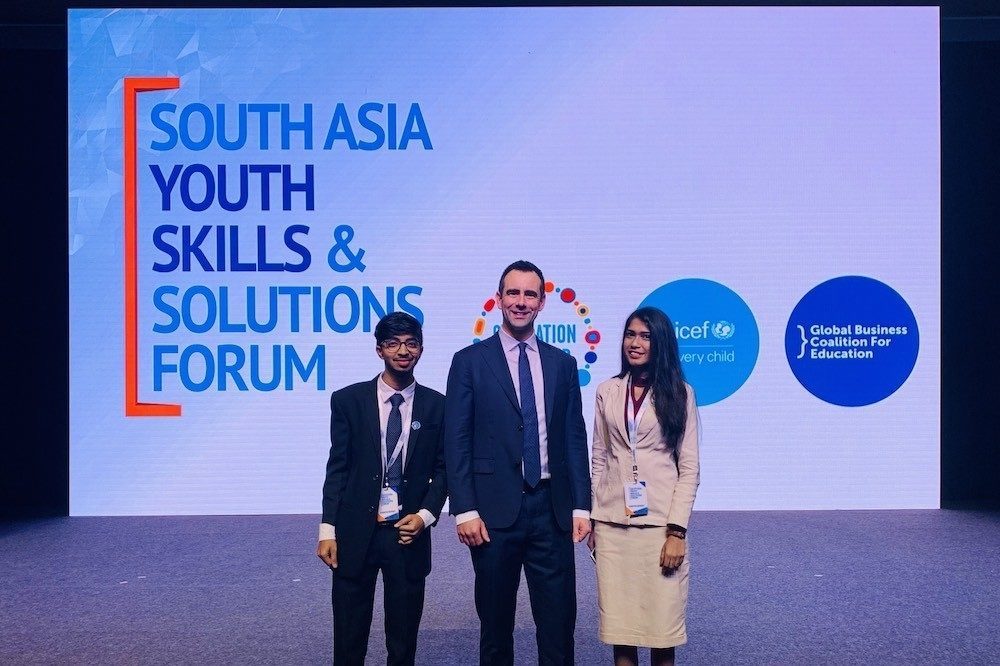
“The key is to keep learning to learn, so that you are not left behind and you keep pace with advancements,” said Global Youth Ambassador Madhu Chauhan from India.
“The people who are closest to the problem are the ones who are closest to the solution. So we are the ones who need to take responsibility.”
She was talking about the youth skills crisis. The pace of technological change is so fast that millions of our familiar jobs will be wiped out in the next few years. That means young people need to acquire the right skills to succeed in the future workplace.
More than two-thirds of children in low-income countries – many of them in sub-Saharan Africa and the Middle East – will not be on track to have the skills they need to succeed in the workplace of 2030.
In lower-middle-income countries this figure is 60% and for upper-middle-income countries it is around 40%. The statistics are revealed in the 2030 Skills Scorecard, published by the Global Business Coalition for Education.
#WriteTheWrong is campaigning for greater awareness of the youth skills gap and calling for urgent action to be taken by governments, businesses and other stakeholders.
International Finance Facility for Education
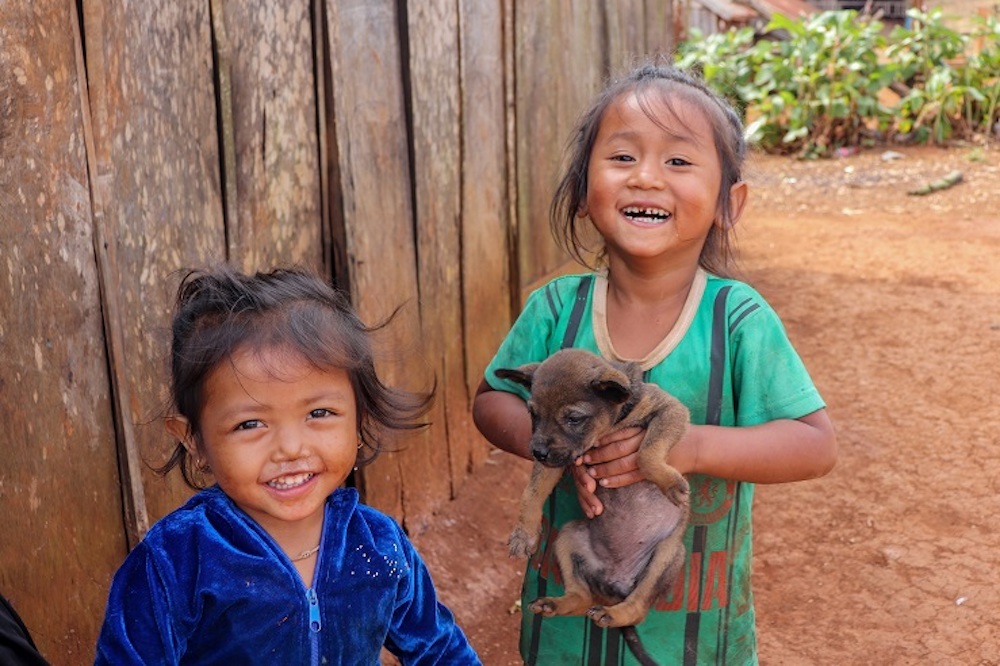
“When I was young, I didn’t receive education, so I want my daughters to go to school so they can have good jobs,” said Nhek Ren, a 21-year-old from the village of Pu Tru in Cambodia.
Cambodian children continue to fall behind in school for a number of reasons, according to UNICEF. They include not being adequately prepared for school and the poor quality of teaching and learning.
While there are funds to provide education for children in crisis and in the world’s poorest countries, there are still millions of school out of school in the “missing middle” nations which lie between the developing world and rich ones. They include Cambodia, as well as Indonesia, Myanmar, Cote D’Ivoire, Bolivia, Egypt, Syria, Yemen and many others.
They will be helped by the new International Finance Facility for Education, which Theirworld campaigned long and hard to have established. Guarantees of $500 million and grants of $100 million for IFFEd made at the UN General Assembly in September will allow an additional $2 billion to be mobilised to get children into school.
Global Youth Ambassadors
In this #betterangels podcast, @SarahBrownUK speaks to four of our inspiring Global Youth Ambassadors, who are working together to end the global education crisis. https://t.co/z5FQCDD7LG pic.twitter.com/zBN6QzVZY4
— Theirworld (@theirworld) November 12, 2019
“Serving as a Global Youth Ambassador has been a humbling experience that has given me immense experience about advocacy and standing up for girls’ and women’s education rights,” said Sarah Natumanya. “I am privileged to have used this experience to work with young people in Uganda and other parts of the world.”
Sarah has recently completed her term as a Global Youth Ambassador for Theirworld. The GYAs are heavily involved in promoting the #WriteTheWrong campaign and all are champions for education in their own countries and communities.
Several of our Global Youth Ambassadors feature in a new episode of the Better Angels podcast series, hosted by Theirworld Chair Sarah Brown and recorded in New York during the UN General Assembly.
Wanja Maina, an inclusive education campaigner from Kenya, said: “”If I have a voice and I can see things are wrong, then I have to #WriteTheWrong.”
Disabilities and inclusion
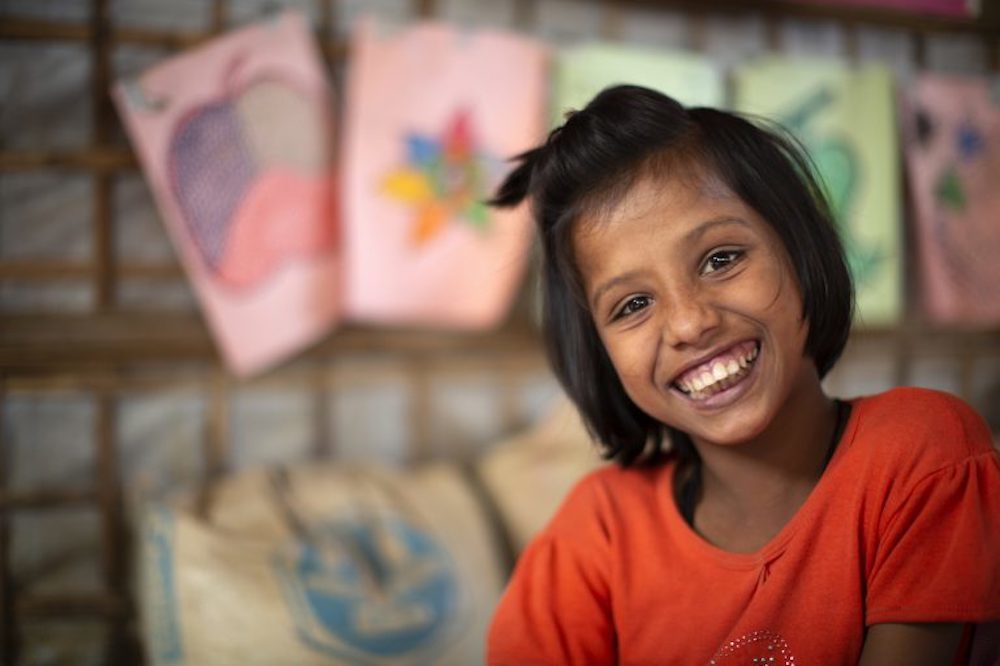
Yasmina’s mother is so proud of the progress made by her 10-year-old daughter, who is challenged by a speech impediment and learning difficulties.
“I can see a big difference in Yasmina over the past few months. She was so happy to receive her first set of school books. She takes them home to study each night,” said Abia Hatan, a Rohingya refugee living in Bangladesh.
Yasmina was helped by financial support from Education Cannot Wait and attends classes at the UNICEF/Plan learning centre in Kutupalong.
Globally, there are more than 33 million children with disabilities out of school – and more than half of all secondary students with disabilities are not in school.
Vibhu Sharma from India is working as a disability and inclusion consultant for Theirworld. She said: “I strongly believe that young people with disabilities need to voice their concerns, needs and demands. It’s we, the young people, who struggle with the everyday challenges of our time and we have the solutions.”
Read a full interview with Vibhu – and a podcast she recorded with Theirworld Chair Sarah Brown.
Early childhood education
Some of the poorest children in Tanzania go to Play Labs run by the charity BRAC. “The aim is to make children participate in early learning activities in learning environments and to develop their cognitive, emotional, linguistic and numerical capabilities,” explained project manager and childhood development expert Janeth Malela
“They learn to communicate, socialise and become better prepared for school. It’s a space to play, to develop their language and games and improve their learning.”
Early childhood education is the building block that ensures children are ready to start school. But Theirworld’s report Leaving The Youngest Behind revealed the international community has cut the funding and prioritisation of these programmes.
#WriteTheWrong is leading calls for donors, countries and United Nations agencies to spend 10% of their education budgets on pre-primary education. A major commitment to do that by UNICEF, supported by other global organisations, has been welcomed by Theirworld.
More news

